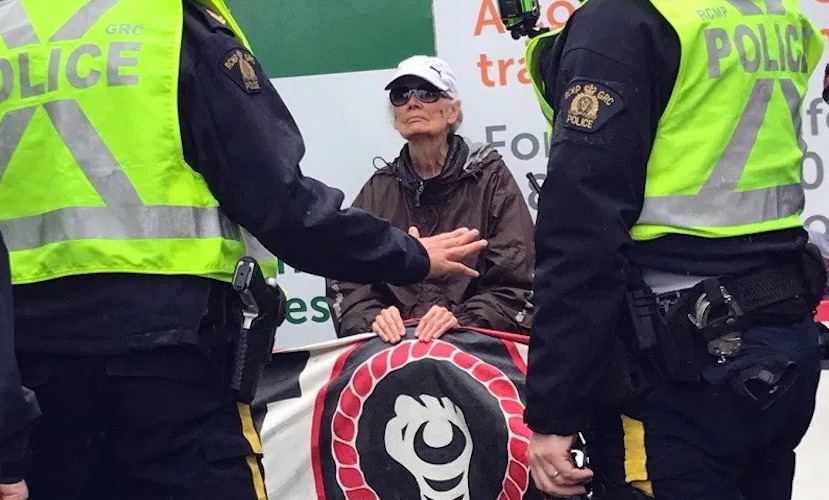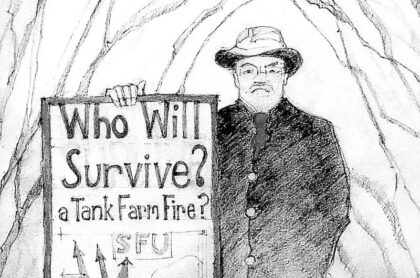Reverend Epperson submitted the following letter to several newspapers. It is posted here for interested members of the congregation.
Proportional representation leads to more fair and inclusive government
By Reverend Steven Epperson, Unitarian Church of Vancouver
I want to add my support to those individuals and groups, including the BC Conference of The United Church of Canada, in their endorsement for the proportional representation (PR) option in the electoral reform referendum in British Columbia.  Advocacy for the practice of “the democratic process within our congregations and in society at large” has been a bedrock principle of the Unitarian religious tradition throughout its nearly 500 year-long history.
Advocacy for the practice of “the democratic process within our congregations and in society at large” has been a bedrock principle of the Unitarian religious tradition throughout its nearly 500 year-long history.
Under our current First Past the Post (FPTP)—or “winner-take-all” voting system—the party with the most seats can form a government even if it received a minority of the popular vote. That means, in effect, that political parties win 100 per cent of governing power, even if they received only 40 per cent or less of the vote. Thus 60 plus percent of votes are disregarded, an outcome which can foster resentment and alienation – as was well noted by former Liberal premier Christy Clark in 2009.
The main change, which is found in all three PR options in our ballots, is that the percentage of votes should bring the percentage of seats. It is basic common sense, apart from some details of process, and the bedrock principle is sound. That is why about 90 other democracies in the world use PR, including Commonwealth entities such as Australia, New Zealand, Ireland, Scotland and Wales.
This topic should not be a partisan one – although regrettably it has become so – because all the B.C. parties have suffered unjustly under the FPTP system (such as the B.C. Liberals in 1996). The “No to PR” campaign mostly uses negative attacks on the referendum process instead of defending its electoral status quo, raising the question: Is it able to?
The No campaign slogan hails FPTP as “Simple, Stable and Successful.” Where is any mention of democracy there? Too often the most “simple” and “stable” systems are autocracies. And “successful”—for whom, exactly? The majority of voters, or for those like the “No” side which condescendingly – and wrongly – asserts that PR is “too complex and confusing,” and resorts to video ads of goose-stepping soldiers to confuse and scare B.C. voters? This last outcome would be prevented by the PR rule that fringe parties must gain at least five percent of the vote, while their combined total is now usually at less than one percent. In fact, the greater inclusivity of the PR system may assist in reconciliation with our aboriginal peoples.
People often express to me their astonishment over the US voting system with its anti-democratic, antiquated Electoral College that enabled the current president to win despite winning 2.8 million fewer votes than his rival. Isn’t our own FPTP, winner-take-all voting system – designed in 13th century Britain to fit a two party system – similarly antiquated?
Think of how our federal Conservatives in 1988, with 43 percent of the popular vote, formed a “majority” government and then rammed the Free Trade Agreement through Parliament, despite being opposed by parties supported by 57 percent of the population. In a different FPTP twist, here in B.C., think of how the Liberals won 58 per cent of the vote in 2001—a majority to be sure—yet they gained every legislative seat except two because of FPTP. This left the province with no official opposition for four years. Such results could happen again under the old system.
I worry about the long-term effects of FPTP’s winner-take-all politics on our young people and future generations. If having voted with a majority, their votes are then disregarded as a result of our FPTP system leading to “false majority” governments, they will feel that their votes are wasted; they may understandably conclude they are in effect disenfranchised, and wonder: why bother to vote at all?
Let us learn about different electoral systems and refuse patronizing claims that these are “too complex” for us to understand. Trustworthy information is available in the Elections BC booklets and website. The four options in the referendum are also explained in your ballot package. Moreover, if voters do not like how a new PR system works out in practice, you can vote to reverse it in the second B.C. referendum, that is, you can “try it before you buy it.”
I will be voting for Proportional Representation. It is a step on Canada’s path to political maturity, and towards a more fair, inclusive and accountable government.
Rev. Dr. Steven Epperson
Unitarian Church of Vancouver
949 West 49th Avenue
Vancouver, BC V5Z 2T1
References:
Canadian Unitarian Council Resolution on Imagine Democracy
United Church of Canada, BC Conference Statement
United Church Supports Proportional Representation for Justice







 Advocacy for the practice of “the democratic process within our congregations and in society at large” has been a bedrock principle of the Unitarian religious tradition throughout its nearly 500 year-long history.
Advocacy for the practice of “the democratic process within our congregations and in society at large” has been a bedrock principle of the Unitarian religious tradition throughout its nearly 500 year-long history.
You must be logged in to post a comment.